Filter by
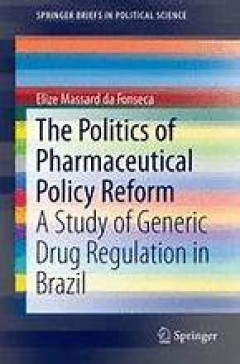
The Politics of Pharmaceutical Policy Reform
Brazil is renowned worldwide for its remarkable reforms in pharmaceutical regulation, which have enhanced access to essential medicines while lowering drug costs. This book innovates by analysing the generic drug reform in Brazil, demonstrating that pharmaceutical regulation is only partially influenced by non-state actors. Little is known about the institutional antecedents and policy process…
- Edition
- 1
- ISBN/ISSN
- 978-3-319-12565-7
- Collation
- Politik
- Series Title
- SpringerBriefs in Political Science
- Call Number
- 324
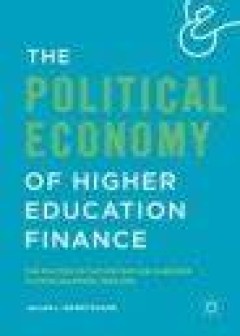
The Political Economy of Higher Education Finance
This book analyzes the political economy of higher education finance across a range of OECD countries, exploring why some students pay extortionate tuition fees whilst for others their education is free. What are the redistributional consequences of these different tuition-subsidy systems? Analysing the variety of existing systems, Garritzmann shows that across the advanced democracies “Four …
- Edition
- 1
- ISBN/ISSN
- 978-3-319-29913-6
- Collation
- Ekonomi
- Series Title
- -
- Call Number
- 330
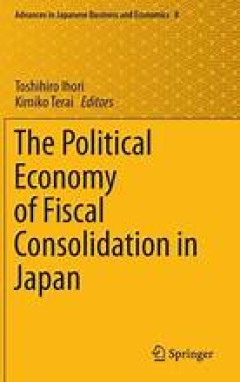
The Political Economy of Governance
Understanding the governance of nations is a key challenge in contemporaneous political economy. This book provides new advances and the latest research in the field of political economy, dealing with the study of institutions, governance, democracy and elections. The volume focuses on issues such as the role of institutions and political governance in society, the working of democracy and the …
- Edition
- 1
- ISBN/ISSN
- 978-3-319-15551-7
- Collation
- Ekonomi
- Series Title
- -
- Call Number
- 330

Heathen Earth: Trumpism and Political Ecology
Heathen Earth: Trumpism and Political Ecology looks beyond the rising fortunes of authoritarian nationalism in a fossil-fueled late capitalist world to encounter its conditions. Trumpism represents an alternative to the forces undermining the very cosmology of the modern West from two opposing directions. The global economy, the pinnacle of modernization, has brought along a dark side of massiv…
- Edition
- Ed. 1
- ISBN/ISSN
- 9780998531885
- Collation
- 158
- Series Title
- -
- Call Number
- 338.9 MCG h
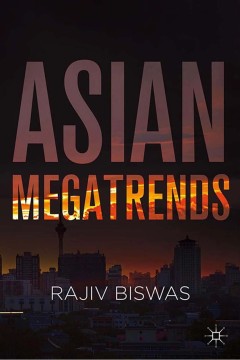
Asian Megatrends
Asian Megatrends assesses the key drivers impacting Asia over the next two decades. The rise of China is transforming the Asia-Pacific, as China’s economic and military might increasingly reverberates throughout the region. India and Indonesia are also rising Asian powers that are changing the shape of the Asian economic landscape. The rapid growth of emerging Asian consumer markets is becomi…
- Edition
- Ed. 1
- ISBN/ISSN
- 978-1-137-44189-8
- Collation
- XI, 245
- Series Title
- -
- Call Number
- 337 BIS a

Arts, Research, Innovation and Society
This book explores – at the macro, meso and micro levels and in terms of qualitative as well as quantitative studies – theories, policies and practices about the contributions of artistic research and innovations towards defining new forms of knowledge, knowledge production, as well as knowledge diffusion, absorption and use. Artistic research, artistic innovations and arts-based innovation…
- Edition
- Ed. 1
- ISBN/ISSN
- 978-3-319-09909-5
- Collation
- X, 297
- Series Title
- Arts, Research, Innovation and Society
- Call Number
- 337 ART a
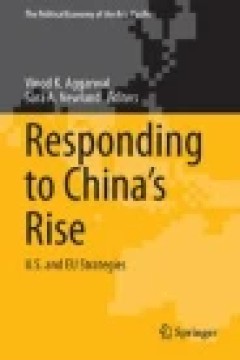
Responding to China’s Rise
In this edited volume, a set of issue and country experts tackle questions regarding China’s current rise to power within the current international economic and political order. The current international system is governed by a “Western” conception of order and based on the primacy of post–World War II rules, drawn from liberal models of capitalism and democracy practiced in the US and …
- Edition
- Ed. 1
- ISBN/ISSN
- 978-3-319-10034-0
- Collation
- -
- Series Title
- -
- Call Number
- -
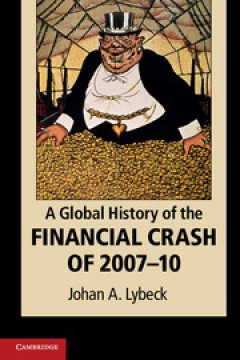
A Global History of the Financial Crash of 2007–10
We have just experienced the worst financial crash the world has seen since the Great Depression of the 1930s. While real economies in general did not crash as they did in the 1930s, the financial parts of the economy certainly did, or, at least, came very close to doing so. Hundreds of banks in the United States and Europe have been closed by their supervisory authorities, forcibly merged with…
- Edition
- -
- ISBN/ISSN
- 9780511984495
- Collation
- -
- Series Title
- -
- Call Number
- -
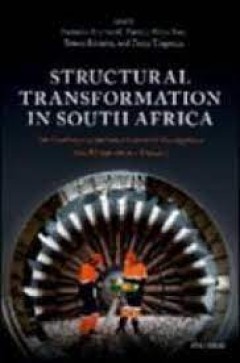
Structural Transformation in South Africa The Challenges of Inclusive Indust…
Taking South Africa as an important case study of the challenges of structural transformation, the book offers a new micro-meso level framework and evidence linking country-specific and global dynamics of change, with a focus on the current challenges and opportunities faced by middle-income countries. Detailed analyses of industry groupings and interests in South Africa reveal the complex set …
- Edition
- -
- ISBN/ISSN
- 9780192894311
- Collation
- -
- Series Title
- -
- Call Number
- -
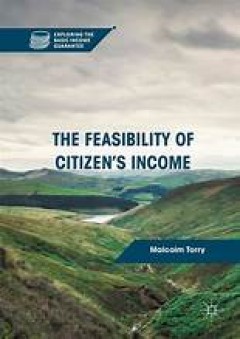
The Feasibility of Citizen's Income
This book is the first full-length treatment of the desirability and feasibility of implementing a citizen’s income (also known as a basic income). It tests for two different kinds of financial feasibility as well as for psychological, behavioral, administrative, and political viability, and then assesses how a citizen’s income might find its way through the policy process from proposal to …
- Edition
- 1
- ISBN/ISSN
- 978-1-137-53078-3
- Collation
- XXIX, 286, 11 b/w illustrations, 2 illustrations in colour
- Series Title
- Exploring the Basic Income Guarantee
- Call Number
- -
 Computer Science, Information & General Works
Computer Science, Information & General Works  Philosophy & Psychology
Philosophy & Psychology  Religion
Religion  Social Sciences
Social Sciences  Language
Language  Pure Science
Pure Science  Applied Sciences
Applied Sciences  Art & Recreation
Art & Recreation  Literature
Literature  History & Geography
History & Geography